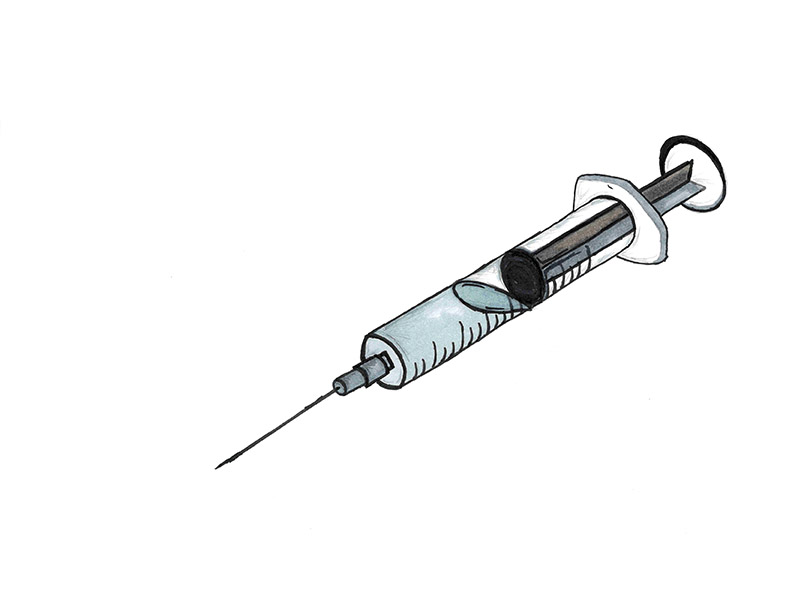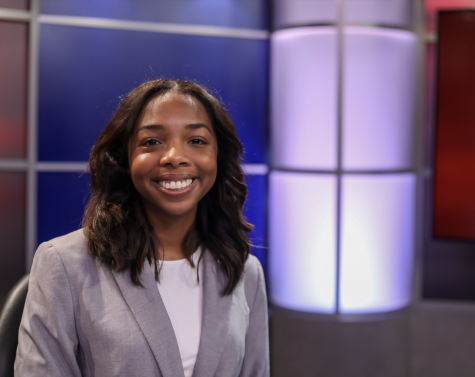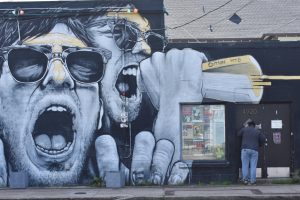Monkeypox concern spreads across New Orleans
September 11, 2022
Monkeypox cases are growing in the country, causing concerns for students as another virus amid the COVID-19 pandemic threatens their college experience. While the virus is rapidly spreading through males who have sexual encounters with other men, people outside of that community are at risk of catching the virus from close physical contact with others.
Members of the Loyola community are protecting themselves with vaccinations and by taking precautions in their daily lives.
Journalism junior Angel Martinez was eager to find a vaccine for the monkeypox virus as he is a part of the queer community.
Martinez received his vaccine after looking for a week and a half before finding a vaccine clinic on West Bank. He said that the media’s perception that the virus was only affecting the gay community made him want to receive it even more.
“We’re just here enjoying life, being out, and I think it is a major concern, especially at Loyola where we have a big LGBTQ population on campus,” Martinez said. “So even though it doesn’t sound right, the media is putting out there that gay people are the only ones that are going to get it, and we have no idea if that’s actually true or not.”
Melissa LeBrun, Loyola’s family nurse practitioner program director and assistant professor in the university’s School of Nursing, said that monkeypox is a part of the Variola virus family which causes smallpox. The main way monkeypox spreads is through close contact like skin to skin contact of the nose, mouth, throat and genitalia, she said.
“College-age students are at risk from close intimate contact, but it can come from objects as well,” said LeBrun.
Director of the New Orleans Health Department Dr. Jennifer Avegno also said that monkeypox is spread through skin-to-skin contact with active lesions, though respiratory and sexual transmission are still possible.
The main distinguishing factor of monkeypox is a rash typically near the genitals or the anus, but LeBrun said that rash could be in other areas like the hands, chest, face, mouth or feet. “The rash goes into several stages, and it usually scabs before it heals. A lot of times the rash can look like pimples or blisters, and it may be painful as well. Other symptoms to watch out for are exhaustion, headache, fever and chills, which are very similar to COVID symptoms,” LeBrun said.
In an email sent on Aug. 23, the university gave students monkeypox prevention tips such as avoiding skin-to-skin contact with people that have a rash, avoiding sharing drinks and food, washing hands frequently and avoiding touching the linens of someone who has monkeypox. This includes clothes, bedding and towels.
Orleans, Jefferson, Plaquemines and St. Bernard parishes currently have 117 monkeypox cases, and 34% of the total cases in the state are among 18 to 29-year-olds.
“We have been working very closely with the state to support vaccination efforts, and as vaccine supply has expanded, we have developed numerous events,” Avegno said.
Martinez said the media’s coverage of the ongoing monkeypox virus is similar to the coverage of HIV in the 1980s, which created a stigma that only gay men could contract the virus.
“Back in the day, no one knew if it was right or not that only gay people could have HIV. When it comes to monkeypox, we are still at that stage where we have no structured information about if it only affects men who have sex with men or if it’s affecting everyone,” Martinez said.
However, monkeypox can spread to anyone, including children.
“Anyone who has been in close personal contact with someone who has monkeypox is at risk, regardless of sexual orientation, gender, gender identity,” LeBrun said.
Martinez added that it’s important to remind students that monkeypox is not a sexually transmitted infection, and that misinformation can create a stigma that negatively impacts the LGBTQ+ community.
“It’s not just about sexual intimacy. Sex is one way of having close contact with someone, but close contact can also be touching someone or touching the same thing someone who’s infected has touched,” he said.
As for how monkeypox will affect the college community in New Orleans, Avegno said currently the city doesn’t know. “College activities where large numbers of individuals come into close contact can raise the likelihood of cases on campus, though we do not anticipate the transmission will be as widespread as (COVID-19),” Avegno said.
To protect themselves, individuals can limit the number and duration of sexual partners and avoid anonymous sex as much as possible, Avegno said. If an individual is immunocompromised or at a high risk of severe disease, she said that they should consider avoiding large gatherings of any kind. LeBrun said the Student Health Center is offering monkeypox testing, and students should speak to their health care provider to learn more about access to monkeypox vaccines.








